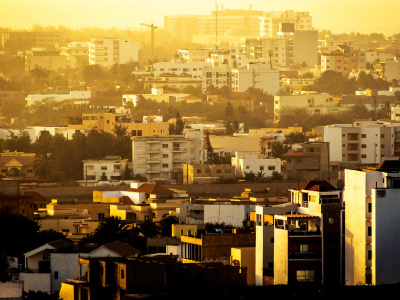
Calendar and Resources, GREAT Insights, Volume 3, Issue 6 (June 2014)
June 2014 June (date TBC) - SADC-EU negotiating round (location unknown) June (date TBC) - EAC-EU Ministerial meeting (EAC region, location TBC) Latest ECDPM publications DP162 How can the EU and member states foster Development through diaspora organisations? The case of Ghanaian diaspora organisations in the Netherlands Integration and participation ‘here’ significantly influence the ability of diaspora organisations to function ‘there’. This derives from diaspora’s dual affinity with and engagement in more than one homeland. Diaspora organisations provide diaspora communities with platforms for constructive engagement with host country institutions and participation in policy processes. Raising the visibility of diaspora participation and boosting its added value for host-country societies through policy and public debates would contribute to informed perceptions of migration. Diaspora organisations performing activities centring on enterprise and investment in the country of residence and the country of origin have the potential to address issues such as unemployment and burden on the welfare system. Otieno Ong’ayo, A. 2014. How can the EU and member states foster Development through diaspora organisations? The case of Ghanaian diaspora organisations in the Netherlands. ECDPM Discussion Paper 162. Maastricht: ECDPM. The Global Game Has Changed: What Role for Europe-Africa Relations? Ferreira, P. Magalhães (ed.). 2014. The global game has changed: What role for Europe-Africa Relations? Lisbon: Europe-Africa Policy Research Network. Seven years after the long-term vision established in the Joint Africa-EU Strategy (JAES), the overall ambitious goal of implementing a partnership between equals and take the Africa-EU relationship to a new strategic political level remain largely unfulfilled. The need for a mindset and paradigm shift is, however, more relevant than ever, particularly taking into account considerable changes in both continents in the last few years, in terms of social, demographic, political and economic dynamics. While ‘old Europe’ keeps struggling with anaemic growth and high unemployment, Africa has become a pre-emerging continent. As Europe wrestles with self- doubts about its future and place as global actor and struggles to keep its contributions to international de- velopment, in Africa the expectations about the future are generally positive: high-growth rates, young popula- tions, diversification of development financial flows and partnerships, as well as a stronger internal vision about its plans and interests (e.g. Agenda 2063, PIDA continental infrastructure programme, CAADP agriculture and food strategy etc.). On the other hand, the challenges are also paramount: Africa continues to face major socio-economic and regional integration challenges; it is plagued by multidimensional poverty and recurrent crisis/fragilities, and therefore needs to actively build and consolidate its international partnerships to help implementing its transformation agenda, in an effective and sustainable way.
